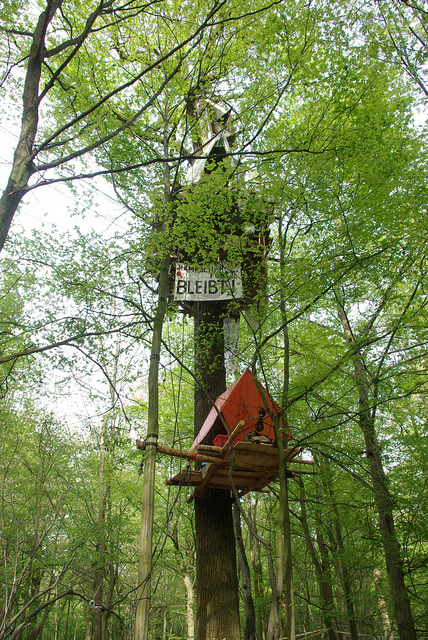After the high of experiencing a quarter of a million people Rise for Climate all across the globe (even Antarctica), following the storm paths of Hurricane Florence in the southeastern United States and Super Typhoon Mangkhut in the Pacific (known as Ompong in the Philippines), has landed my feet firmly onto the ground.
While Hurricane Florence has been downgraded to a Category 1 storm, it made landfall with 150 km/h. Heavy rainfall and storm surges are expected in the coming hours and days. It was the storm surge after Hurricane Sandy that shut down New York City.
Meanwhile on the other side of the globe, Super Typhoon Mangkhut is expected to hit the northern Philippines, Taiwan and southern China early tomorrow morning local time with winds up to 260 km/h. People have been evacuated and farmers are hastily trying to harvest their crops before the storm hits. A phone call with a partner in the Philippines had to be postponed, as he had already lost power earlier today.
Violent typhoon #Mangkhut (#OmpongPH) tracks towards northern Luzon in #Philippines, with winds the equiivalent of category 5 hurricane. Heavy rainfall, high waves and dangerous storm surge of up to 6 meters. This is a huge, potentially devastating tropical cyclone. pic.twitter.com/w9bYTs6E7n
— World Meteorological Organization (@WMO) September 14, 2018
Due to climate change the oceans and atmosphere have warmed. Storms passing over warmer water pick up energy and warmer air, which can hold more moisture, resulting in more rainfall during storms. Finally, due to sea level rise, storm surges pack an even bigger punch.
And as is the cruel irony of climate change, poor, indigenous and people of colour communities are the worst impacted despite being least responsible for climate change. They often are also allotted the least resources to deal with the consequences of climate change, further compounding inequities.
Yet these communities prove to also be the most resourceful and resilient in the face of adversity, creating new possibilities in their aftermath, as Rebecca Solnit eloquently describes in A Paradise Built in Hell.
People’s homes and livelihoods around the world are already destroyed, as the globe has warmed by 0.9°C. We must do everything we can to keep fossil fuels in the ground and limit further warming as much as possible now. At the same time, we must also ensure that adaptation and resilience initiatives are fair and just.
We need to force governments and corporations to get off their fossil fuel addiction and to give all of us the chance to recreate a fairer and more just world, as the committed (mostly) young people occupying Hambach Forest in Germany for the past six years have shown us.

One of the approximately 60 tree houses in the Hambach forest where currently about 150 people live to protect the forest from being cleared.
Their actions, the broad-based opposition from local communities and the wider anti-coal movement have prevented RWE power company from endlessly expanding its lignite coal mines and protected some villages from being razed. Although the state is at this moment forcibly removing the climate superheroes, they have vowed to continue the struggle and are being met with solidarity throughout Germany.
Earlier today climate activists symbolically occupied a Deutsche Bank branch in Berlin. They demand a STOP to the eviction of #HambacherForst & @DeutscheBankAG to stop investing in climate killers like RWE. 2012-2017 Deutsche Bank invested 800mio€ into @RWE_AG. #hambibleibt pic.twitter.com/almVSdxVm1
— 350.org Europe (@350Europe) September 14, 2018
Every one of us can be a superhero if we continue to struggle together, especially when it seems so dire. If we don’t do it, who will?